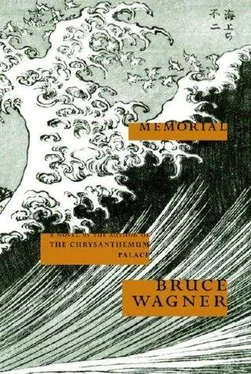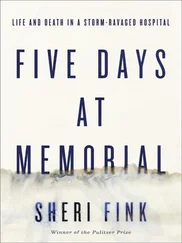He stood.
“Here’s what I think.”
“Tell me what you think,” she said, girlishly.
“Let’s get this party started.”
RAY left a message with the cop who sent the note, inviting him to drop by if he was ever in the neighborhood. 3 hours later, the detective knocked at his door.
He was in his early 50s, sandy-haired and red-faced. Funny, he reminded Ray of Robert Redford in that Twilight Zone, thicker and older of course, in a sport jacket instead of a uniform. Ghulpa seemed suspect of his visit and Staniel Lake (“My granddad was Daniel and my father was Stan, and yes, the kids called me ‘cocker staniel’ in school”) picked up on it. He made it clear right at the beginning that he wasn’t there as a representative of the department and whatever legal course Ray decided to take meant nothing to him. He said he was here for strictly personal reasons: though he didn’t want to “talk it to death,” he felt bad about what happened, plain and simple. BG made tea and offered to heat up prawns in grated coconut. The detective politely declined, indicating that he didn’t want “to add to the paunch.” He didn’t really have much of a stomach, but his manner charmed them both.
Detective Lake kept it light.
Ray was again touched to hear he’d come to the hospital, and apologized for not being awake. “That was plain rude,” he said.
Staniel laughed. “I was happy to see you get your rest.”
He said that his father, a retired police officer, died about 2 years ago from emphysema in that very same place. Ray had a few choice words for the night shift’s bedside manner and the detective mordantly chuckled. The assumption he already knew that his host was partial to the shield hung in the air; a tough old bird who wasn’t litigation-happy. Nowadays, that was practically a miracle. Ray started to feel like a retired cop himself — one of the boys.
Staniel asked after the dog. The old man said he’d been to visit the Friar, who was on the mend and would probably be home in a couple of weeks. The guest was genuinely happy to hear it. “The night was a royal fuckup,” he said, violating his own informal rule, once Ghulpa was out of earshot. (He dipped his voice so she wouldn’t hear the vulgarity.) Ray thought that gutsy because anything the detective said might technically be used against him and his department. Not that Ray would ever break confidence, not in a million years, and Staniel Lake seemed to know it.
To be conversational, Ray said he used to live in Mar Vista, and how he once owned a miniature golf course; a magic shop; then a bigger place on Sepulveda called Ray Rausch’s Game Emporium. How he’d lost everything in the slot-car craze of the late 60s after buying a miniature racetrack — Racer Ray’s Indy 100. How he’d gambled away whatever savings he had. How he got divorced in ’73 and lost contact with his kids. The grim years before going back to work at a hobby “hatch” in Montebello. (The old man covered a lot of ground. Even Ghulpa learned a few things she didn’t know.) The owner of the place “up and died,” leaving Ray the entire inventory, which he sold just in time: mostly trains and model planes. Kids were collecting different kinds of things now, computer-related. He couldn’t pretend to even understand the gaming market anymore. But he’d done all right, he said.
By the time the detective got paged and had to run, Ray had been beating his gums for almost an hour. Later, he realized how lonesome he’d been for intelligent male companionship.
THAT night the old man had crazy dreams triggered by his pell-mell reminiscence. His bedroom got mixed up with the CCU, and the clinic Nip/Tuck was at. Joanie and Chester peered out from weird foliage, frozen at the ages when he left—3 and 7—and Ray began whimpering in his sleep. He awakened with a jolt when a lion sprang on his chest, and Ghulpa comforted him, fetching a cool, damp rag. He shook his head in dismay. With a sardonic smile, he told BG he had her to thank; she always regaled him with tales of man-eaters from the Gir Forest that she’d seen as a child at the zoo in Calcutta. She loved telling him the stories her parents recounted of lions that crept up on pilgrims who lay sleeping in camps, leaving only bloody saris behind. They’d walk right into houses and silently carry out children by the napes of their necks in the dead of night. Whenever there was something in the news about a little boy or girl who’d been stolen from her room, in California or Florida or wherever, then found murdered down the road or in a creek, Ghulpa’s face darkened. She could never see the human hand.
“The lions,” she’d whisper. “They are not stories!” She was defensive, eager to repel all argument. “It is still happening each year, in Bombay! In Delhi, in Calcutta!”
MAURIE kept leaving messages but Chess didn’t feel like returning. He was moody and pissed. He still hadn’t met with that attorney.
The bone doctor X-rayed and found nothing. He said Chess should probably see a neurologist for an MRI. He now had shooting pains in both hands and numbness in one of his thighs but wasn’t sure if the numbness was “real” or some sort of byproduct of pain. He hated being a pain patient; when you spoke to doctors it was like you’d fallen down the rabbit hole — the habit hole — where all perception was up for grabs. In order to gauge your “distress,” the nurses asked you to point to emoticons on a sliding scale: primitive renderings of faces that were smiling, indifferent, frowning, crying, screaming. It was infantile and regressive, demeaning and asinine. He saw his fellow travelers — the tired, poor, huddled asses of the waiting room — as losers, the low rung of doomed complainants in a new kind of hell. New to him, anyway. He was still a virgin, but pretty soon he’d be like one of those African girls forced into marriage that Oprah went to visit who were too young to give birth and wound up with fistulas from miscarriages, incontinent of feces and urine (Saint O gave them little purses with C-notes tucked inside; more than he would get) — soon he’d be turned out right and proper, gangbanged by the Ubangi pain tribe. Chess always imagined that if ever he got sick, it would be something definitive: a burst appendix, a kidney stone. Diabetes. Something organic that hadn’t been done to him. As a joke, and for money! At least his jawbone wasn’t rotting away from an OD of Fosamax.
WAITING for the neurologist, he thumbed a brochure that said 30,000,000 Americans suffered from chronic pain that was so bad they wanted to die. Then why was the FDA busy pulling meds? Someone wanted us to believe that if we took a vestige of Vioxx, a soupçon of Celebrex, a vial of vitamin C, a wicked wedge of Mom’s apple pie, well, then, we were right behind the stroke/heart-attack 8 ball. Someone really wanted us to believe that iddy-biddy Bextra caused “fatal skin reactions”—what the fuck was that, terminal psoriasis? People just wanted to feel better. Had to be some Recondite Brand vs Generic showdown, with trillions at stake.
He flipped through Reader’s Digest, Metropolitan Home, and Surfrider. Read an article about a woman on disability heading to a conference that she organized. Staying at the Grand Hyatt in Washington. Loved her room. Got vertigo and breathing problems from what she thought was the chlorinated water in the decorative pools. Wasn’t the hotel’s fault. Turns out she and who knew how many goddam thousands of others have something called multiple chemical sensitivities or environmental illness. Then there was a thing in Elle about a chick with “impingement syndrome” and decomposing cartilage. Her vertebrae were “slapping” against each other, bone spurs throttling nerve roots. Chess pictured barbed wire wrapped around fresh green stems from Whole Foods. The essay reinforced what he had learned: that chronic pain eventually became not a symptom but a disease in itself. Poor bitch wound up getting steroid injections right in the tailbone, which gave her “a faint beard and a kind of extreme PMS.” Well, far out! The piece ended by informing the reader that an operation often created a worse problem than the one it set out to repair (thanks for the tip). In fact, there was new evidence that, in some cases, exploratory surgery actually revitalized dormant cancers. But none of it mattered to Chess, because by the time you were so miserably desperate that going under the knife seemed like a rational option, well, by then your central nervous system was already so welded to pain that nothing could break the cycle, not yoga, pot brownies, hypnotherapy, methadone, not beaucoup $, not zip. Even making love, as they used to put it, could mortally exacerbate whatever was wrong. George Clooney said he got the sniffles and leaked spinal fluid through his nose after getting injured on the set, but Chess wondered if he’d actually wrenched his back on a 12,000 dollar Lake Como Duxiana.
Читать дальше












